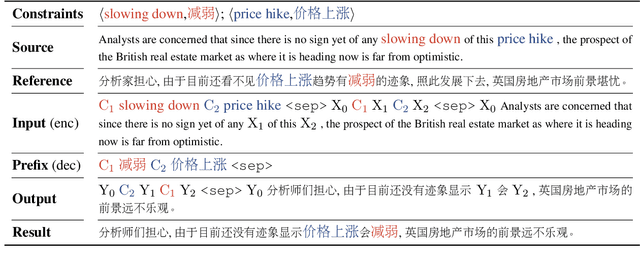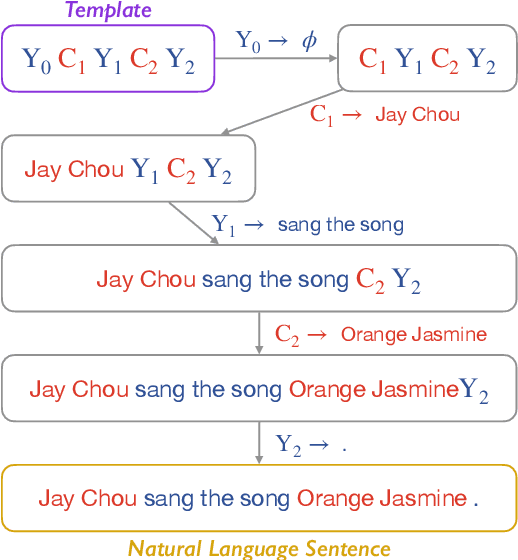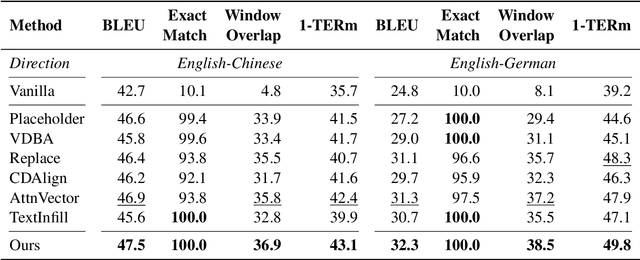A Template-based Method for Constrained Neural Machine Translation
Paper and Code
May 23, 2022



Machine translation systems are expected to cope with various types of constraints in many practical scenarios. While neural machine translation (NMT) has achieved strong performance in unconstrained cases, it is non-trivial to impose pre-specified constraints into the translation process of NMT models. Although many approaches have been proposed to address this issue, most existing methods can not satisfy the following three desiderata at the same time: (1) high translation quality, (2) high match accuracy, and (3) low latency. In this work, we propose a template-based method that can yield results with high translation quality and match accuracy while keeping the decoding speed. Our basic idea is to rearrange the generation of constrained and unconstrained tokens through a template. The generation and derivation of the template can be learned through one sequence-to-sequence training framework. Thus our method does not require any changes in the model architecture and the decoding algorithm, making it easy to apply. Experimental results show that the proposed template-based methods can outperform several representative baselines in lexically and structurally constrained translation tasks.
 Add to Chrome
Add to Chrome Add to Firefox
Add to Firefox Add to Edge
Add to Edge